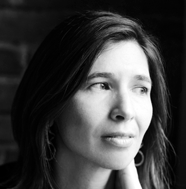This flexible poem can rise and fall with the sea. Its poet says (scroll down) it has varied in length from three pages back down to six lines. More lines now, I wonder if she rules it done and as closed as the biblical canons for Otey and Enty. Or, as with Revelation and James, Luther can banish them to the end of his Bible, any inclined reader can add to Novey's poem but not delete her lines? A so inclined reader voting yes, I'm adding a few, and her assignment is to accept them like it or not, tuck them in wherever she chooses in each's rightful place:
While Greenland melts.
As Miami sinks.
Before Michael made landfall.
When we slid out of the lane.
When my sleeve caught fire.
While we fought in the snow.
While the oncologist spoke.
Before the oil spilled.
Before your retina bled.
Beyond the kids at the curb.
Beyond the turn to the forest.
After the forest turned to ashes.
After you escorted my mother out.
As I led your father in.
As the dolphin swam the derelict canal.
While the cameras filmed it dying.
While the blackout continued.
When the plane dipped.
When the bank closed.
While the water.
While the water.
And we drank it.
|
|
|
She may not like my additions, especially as her lines are subtle and have only common nouns and mine, specific, include proper nouns, but what she likes or dislikes is her problem, not mine, just place them.
Add your own, but it's against the rules to delete her lines or mine.
T
About This Poem
“Over several years, this poem expanded to three pages then contracted to a mere six lines, changing states as dramatically as water does with the rise and fall of temperatures. Allowing the poem to change states this way felt in sync with how the poem tracks an ongoing awareness of the planet’s deteriorating bodies of water and, alongside that awareness, all the private bodily experiences that drive earlier painful memories to surface in the mind each day.”
—Idra Novey
|
|
|
Idra Novey is the author of several novels and poetry collections, including Exit, Civilian (University of Georgia Press, 2012), selected for the National Poetry Series by Patricia Smith, and The Next Country (Alice James Books, 2008). Her co-translations with Ahmad Nadalizadeh of Iranian poet Garous Abdolmalekian are forthcoming from Penguin Poets in 2020. She teaches at Princeton University and lives in Brooklyn, New York.
|
|
|
Pinched from Poem A Day for this morning.
